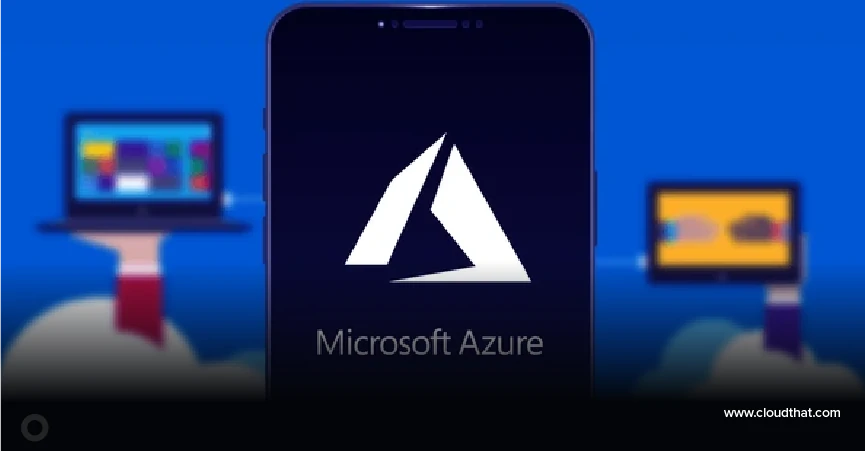|
Voiced by Amazon Polly |
As an Azure developer, understanding the different data storage options available in Microsoft Azure is essential for building scalable, secure, and high-performance applications. Azure offers a wide variety of data storage services that can be tailored to meet the unique needs of different types of applications, from traditional relational databases to modern NoSQL and cloud-native storage solutions.
Access to Unlimited* Azure Trainings at the cost of 2 with Azure Mastery Pass
- Microsoft Certified Instructor
- Hands-on Labs
- EMI starting @ INR 4999*
Why is Data Storage Important for Azure Developers?
Data is the backbone of most applications, and choosing the right data storage solution is crucial to the overall performance, scalability, and maintainability of your app. Whether you’re developing a web application, mobile app, or enterprise system, understanding the different Azure storage options will help you optimize your data architecture.
In Azure, you can find storage services for various needs, such as:
- Structured data: Relational databases for applications requiring tables, rows, and SQL queries.
- Unstructured data: Blob storage for media files, documents, backups, and logs.
- Real-time data processing: Services designed for fast data ingestion and real-time analytics.
- Data consistency and durability: Services that ensure high availability and fault tolerance for mission-critical applications.
Let's dive deeper into the key Azure data storage solutions and their features.
- Azure Blob Storage
Azure Blob Storage is one of the most commonly used storage solutions for Azure developers. It is designed for storing massive amounts of unstructured data such as text and binary data. This includes images, videos, backups, logs, and other forms of unstructured content.
When to Use:
- Storing large files (e.g., media, backups).
- Log files and diagnostic data.
- Static website hosting.
Example Use Case: If you’re building a media streaming platform, Azure Blob Storage can handle all of your video, audio, and image content.
- Azure SQL Database
For developers needing a relational database that provides robust querying capabilities, Azure SQL Database is the go-to solution. It’s a fully managed relational database service based on Microsoft SQL Server.
Key Features:
- High Availability: Built-in high availability features, with automated backups and geo-replication for disaster recovery.
- Advanced Security: Supports advanced security features like Transparent Data Encryption (TDE), Always Encrypted, and Virtual Network (VNet) service endpoints.
- Scalability: Automatically scales based on demand, ensuring you only pay for what you use.
When to Use:
- Applications requiring transactional consistency (e.g., e-commerce sites, CRM systems).
- When you need advanced querying, joins, and SQL-based data manipulation.
- For systems that require ACID properties for data integrity.
Example Use Case: If you are building a customer relationship management (CRM) application, Azure SQL Database would be perfect for storing customer information and transactional data.
- Azure Cosmos DB
For developers working with NoSQL databases, Azure Cosmos DB is a highly scalable, globally distributed database designed to provide low-latency access to data across multiple regions.
Key Features:
- Multi-model: Supports document (SQL API), key-value, graph (Gremlin), and column-family (Cassandra) models.
- Global Distribution: Can replicate data globally across Azure regions, offering low-latency access to data from anywhere in the world.
- Automatic Scaling: Cosmos DB automatically scales throughput and storage, adjusting to your workload demands.
When to Use:
- Applications that need to scale globally with low-latency access to data.
- NoSQL applications requiring flexibility in data models (e.g., IoT, mobile apps, social media platforms).
- Systems that require high availability and failover across multiple regions.
Example Use Case: If you’re building an IoT solution with millions of devices that need to send data in real time, Cosmos DB would be ideal for handling the high throughput and low-latency requirements.
- Azure Table Storage
Azure Table Storage is a NoSQL key-value store that is designed for fast and cost-effective access to large volumes of structured data. It is particularly useful for scenarios where you need to store semi-structured data in a scalable and low-cost environment.
Key Features:
- Simple Structure: Data is stored as entities with properties, similar to rows in a table.
- Cost-Effective: A low-cost solution for storing massive amounts of non-relational data.
- Scalability: Table Storage can scale to handle large volumes of data, with high availability and automatic replication.
When to Use:
- When you need to store large amounts of semi-structured data with a simple schema (e.g., logs, user sessions).
- Applications that require a key-value store with high throughput at low cost.
Example Use Case: If you are building a logging system where each log entry needs to be stored with an ID and timestamp, Azure Table Storage can efficiently store this data.
- Azure Data Lake Storage
Azure Data Lake Storage is optimized for high-performance analytics workloads. It is ideal for big data applications that require the storage and processing of vast amounts of unstructured data, such as logs, sensor data, and raw files.
Key Features:
- Built for Analytics: Supports large-scale data processing and analytics using tools like Azure Databricks and HDInsight.
- Hierarchical Namespace: Supports directories and file-level security, making it easier to organize and manage data.
When to Use:
- Big data applications that require high throughput and low-latency data access.
- Data warehousing, data lakes, and advanced analytics.
- Storing large volumes of unstructured data for analysis and reporting.
Example Use Case: If you’re working on a big data analytics project where you’re ingesting and analyzing log data from thousands of IoT devices, Azure Data Lake Storage would be the optimal solution.
Conclusion
As an Azure developer, you have access to a range of powerful data storage options that can be tailored to suit your application’s specific needs. From Azure Blob Storage for unstructured data to Azure Cosmos DB for globally distributed NoSQL applications, each Azure storage solution offers unique capabilities to ensure that your application performs at its best, whether you’re building a simple app or a complex enterprise solution.
Enhance Your Productivity with Microsoft Copilot
- Effortless Integration
- AI-Powered Assistance
About CloudThat
CloudThat is an award-winning company and the first in India to offer cloud training and consulting services worldwide. As a Microsoft Solutions Partner, AWS Advanced Tier Training Partner, and Google Cloud Platform Partner, CloudThat has empowered over 850,000 professionals through 600+ cloud certifications winning global recognition for its training excellence including 20 MCT Trainers in Microsoft’s Global Top 100 and an impressive 12 awards in the last 8 years. CloudThat specializes in Cloud Migration, Data Platforms, DevOps, IoT, and cutting-edge technologies like Gen AI & AI/ML. It has delivered over 500 consulting projects for 250+ organizations in 30+ countries as it continues to empower professionals and enterprises to thrive in the digital-first world.

WRITTEN BY Mahendra Patel
Mahendra Patel is Subject Matter Expert in Azure Infra/Arch at CloudThat, with a passion for empowering professionals through top-tier Microsoft training. As an MCT he brings over 13 years of rich experience in training, academics and research. He holds 18+ professional certifications across Microsoft ecosystem and has successfully trained over 2200+ professionals in Azure Solution Architect, Azure Administrator, Azure Network, PowerBI, Azure Security and AI Data Engineering. His hands-on, tool-driven approach to training is known for translating complex concepts into practical, real-world solutions.


 Login
Login


 May 14, 2025
May 14, 2025 PREV
PREV











Comments